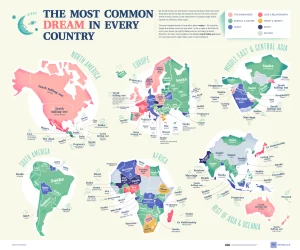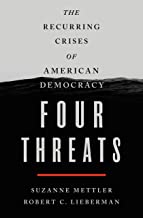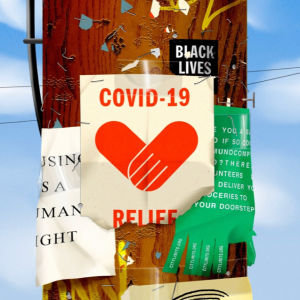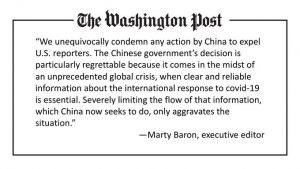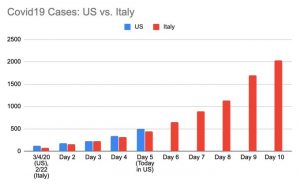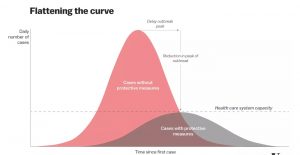Vox
Dayle in Limoux – Day #33
August 7, 2022To be a projection of higher value. As I begin this day, I am open to receive. May my mind stay open and may I not deviate from things that are pure (Cathar) and true. Beyond the illusions of this worldly plane. I surrender to you my doings this day.
From Fr Richard Rohr, The Center for Action & Contemplation
‘In his book Coming to Our Senses, historian Morris Berman makes the point that our first experience of being alive is not through the visual or auditory experience of knowing ourselves through other people’s responses; it is primarily felt in the body. He calls this kinesthetic knowing. We know ourselves in the security of those who hold us, skin to skin. This early encounter is not so much heard, seen, or thought. It’s felt. That’s the original knowing.
Hopefully, our caregivers’ early gaze told us we were foundationally beloved. But when we inevitably begin to see ourselves through eyes that compare, judge, and dismiss, then we need spirituality to help heal the brokenness of our identity and our world.
It parts the veil and tells us that our primal experience was trustworthy. It tells us that we are beloved, whether we received that mirroring gaze or not. It reassures us that we live in a benevolent universe, and it is on our side.
The universe, it assures us, is radical grace.’
︶⁀°• •° ⁀︶
How do you dream?
‘In Bhutan, they dream of rainbows.
In countries throughout the world, even in countries where there are no snakes, the most common dream is one based on our (it must be) genetic fear of snakes.
But in Bhutan, they dream of rainbows.
The dreams might be consistent, but the way we talk about them clearly isn’t. Perhaps the dreams we remember and talk about have something to do with culture.
Conversations are contagious.’
-Seth Godin
︶⁀°• •° ⁀︶
‘It is fashionable to be pessimistic about humankind — look at the assorted messes we’ve got ourselves into, and the undoubted evil that pervades the whole earth: war, poverty, child abuse, slavery, drugs, corruption of various sorts, racism and sexism, bigotry, hypocrisy — the list is depressingly long. Finding it impossible to comprehend that a good God would be concerned with such a hell, the Gnostic developed the idea that there were two Gods, the evil one who ruled the Earth, and the good God who lived in Heaven. Undoubtedly almost every individual who has ever lived has had some experience of this life as living hell, but without necessarily adding to it him, or herself.
[…]
Free of priests, gurus and dogma, the progress of our spirit is, perhaps terrifyingly, nothing more or less than our own responsibility.’ [Shades of Emerson.]
-Lynn Picknett, ‘Mary Magdalene’
‘The imaginal realm is real, and through it you will never be separated from anyone or anything you have ever loved, for love is the ground in which you live and move and have your being. This is the message that Mary Magdlane has perennials to bring. This is the message we most need to hear.’
[…]
‘It is clear that Mary Magdalene knew a good deal about that realm. At that spiritual tipping point where “no longer the object of my affection, he has become the subject of my truth,” a new energy emerges: pure (Cathar) creativity and effortless action. This is the “spiritual procreativity” described by both the Gospel of Philip and the poet Rilke.’
-Cynthia Bourgeault
‘The Cathars left behind no magnificent church architecture, for they believed that the essence of Christ’s teaching was humility and an indifference to material possessions. The temple of God lay within us for He was approached through the heart.’
-Margaret Long, author
︶⁀°• •° ⁀︶
Went to a wonderful concert tonight for the community at Saint-Martin’s. The organist and the alto soprano were beautifully in tandem. And the acoustics! Those 12th century builders…they knew. :)
At one point in history, Saint-Martin’s was actually a cathedral. In 1316, after the Albigensian Crusade, Pope John XXII created a small diocese, centered here in Limoux.
╰ღ╮╭ღ╯
Reading in France tonight about the U.S. Senate vote today:
Senate Democrats pass $740 billion tax, climate and health care bill. [Axios]
Jeff Stein, White House economics reporter for The Washington Post, writing:
Biggest-ever climate bill: Massive industry clean energy money; $80B for EVs, heat pumps, home solar installation
Up to $7,500 to buy an EV — Up to $2K for heat pump — 30% off home rooftop solar — $840 for electric cooktop — Up to $9K for electric panel/home insulation
The planet continues to burn, and climate breakdown is painfully and frighteningly real.
From VOX:
The Senate just passed one of the biggest bills to fight climate change, ever.
What’s in the “game changer” climate bill nobody saw coming.
by, Rebecca Leber
Aug 7, 2022
David Goldman/AP
‘After nearly 18 months of haggling and 15-straight hours of weekend votes, Senate Democrats passed the Inflation Reduction Act on a strict party-line vote on Sunday.
The bill contains $369 billion in funding for clean energy and electric vehicle tax breaks, domestic manufacturing of batteries and solar panels, and pollution reduction. It is the single most important step the US has ever taken to combat the climate crisis. And arguably, it’s one of the single biggest investments ever made on climate in the world.
If the bill’s policies work as intended, it would push American consumers and industry away from reliance on fossil fuels, penalize fossil fuel companies for excess emissions of methane, and inject needed funds into pollution cleanup.
The bill uses tax credits to incentivize consumers to buy electric cars, electric HVAC systems, and other forms of cleaner technology, leading to less emissions from cars and electricity generation, and includes incentives for companies to manufacture that technology in the United States. It also includes money for a host of other climate priorities, like investing in forest and coastal restoration and in resilient agriculture.
These investments, spread out over the next decade, are likely to cut pollution by around 40 percent below 2005 levels by 2030, according to three separate analyses by economic modelers at Rhodium Group, Energy Innovation, and Princeton University. The legislation helps move the US a little closer to its stated goal of cutting pollution in half within the decade.’
[Full piece]
And we can all do our part to contribute to the shift to save and heal our Gaia. We must.
YES! Magazine
“Earth repair is a participatory sport: a grassroots response to evolving global crises.”
While mainstream environmentalism has historically pursued either preservation or conservation, Schwartz’s new book, The Reindeer Chronicles (Chelsea Green 2020) explores a third option: regeneration.
She looks at community efforts to restore ecosystems the world over. “We’ve been trained to believe that finding solutions is a job for the experts,” she writes, but “Earth repair is a participatory sport: a grassroots response to evolving global crises.”
We may not know what the future climate is going to look like, and she acknowledges that not knowing is really hard. “But we’ve got to try,” she says matter of factly. “We’re here now … Just start.”
“There is no natural law that says profit must supersede other types of reward,” she writes. “The truth is, we are what we measure—or at least our actions are largely determined by how we gauge success. What if environmental healing, social engagement, and a commitment to the future governed our companies and institutions, and therefore our work lives?”
“We’ve all got places,” she says. “Places have their own ecological logic. Let’s do what we can where we are and learn from each other.” That idea of connecting with place and community is central to her worldview. “The ‘we’ who can address climate change is everybody,” she says.
“There is no one size fits all for climate action.” Schwartz says we need to protest oil companies and make art and grow healthy food and feed one another and, in her case, write—all using our respective skills to imagine a more resilient world.’
#
The Guardian
Photograph: SbytovaMN/Getty Images/iStockphoto
Clever use of water in the garden saves untold time and effort
You’d be amazed at how much time some gardeners spend watering
- Plant in the ground, not pots
- Use Mulch
- Water in the cool of the evening
“At first there’s no path…and then someone bravely makes a step, and others join…just start.”
-Jacqueline Novogratz
🌏 ℒℴve
À bientôt.
❀
Cut the wire.
April 5, 2021‘The heart opens doors the mind can’t find.’
-Jennifer Rose
‘That barbed wire on your path is the mind. Cut the wire and your path clearly find. Heart trickster, soul veil and mind bind. To find the path you must put all three behind.’
-RUMI
Y
E
S
‘People’s beliefs about the world are only as reliable as the information system that shapes them and ours is completely and irredeemably broken.’
-Sean Illing, VOX
We need a new paradigm.
George knew. Now we do, too.
September 26, 2020George Washington in his farewell address, Saturday, September 17, 1796:
“However [political parties] may now and then answer popular ends, they are likely in the course of time and things, to become potent engines, by which cunning, ambitious, and unprincipled men will be enabled to subvert the power of the people and to usurp for themselves the reins of government, destroying afterwards the very engines which have lifted them to unjust dominion.”
~
I’ve wanted to see this documentary since it premiered at the Sundance Film Festival in January, winning the U.S. Grand Jury Prize for Documentary. I’m grateful that I was finally able to stream it this evening, at the end of a week shrouded in deep despair after Ruth Bader Ginsberg’s untimely passing and a nomination to the Supreme Court that will mostly likely undue 50 years of RBG’s tireless human rights and gender rights pursuits. Boys State has given me a glimmer, a moment, of hope, showing a microcosm of our general great political process, and those young voices and minds who are poised, and want, to lead this country.
I don’t believe the United States is truly a democracy…not any more. Maybe what we’re trying to steer, and salvage, at this point is a fractured political process, once guided by a constitution that, although not guaranteeing protection, has given us a frame to serve the people…we the people…with accepted norms, practices, and behaviors of those we elected into office. Now, it’s seemingly only about power, and greed, and ‘winning’, at all costs.
Boys State is a documentary about a high-school civics conference where every year, more than 1,000 young men, age 16 or 17, meet at the Texas State Capitol to participate in a mock government. They section off into the Federalist and Nationalist parties to elect various political positions and vie for the highest position—governor.
Hope is not a word that comes easily to me now, yet this film shares, while holding a mirror to our divided country, a glimpse of hope, possibility, and passion for what America could once again aspire to be.
I suggest coupling the film with a podcast that gives explanation and history to where we’ve landed, detailing the risks…the perfect storm…we are facing in this national election.
-dayle
From host Ezra Klein at VOX:
‘The death of Ruth Bader Ginsburg, just weeks before a presidential election, leaves us in dangerous waters. It’s easy to imagine a scenario in which the election outcome is contested by one side and is ultimately determined by a Supreme Court with the deciding vote cast by Trump’s recent appointee. Indeed, both Sen. Ted Cruz and President Donald Trump have named this scenario as driving their urgency to replace Ginsburg. At that point, a legitimacy crisis looms.
Suzanne Mettler is the John L. Senior Professor of American Institutions at Cornell University. Her work has focused on trust between citizens and their governments, but recently, she’s co-written, with Robert Lieberman, a book that is tailor-made for this moment:
Its thesis is a dark one: America’s most dangerous political crises have been driven by four kinds of threat:
- political polarization
- democratic exclusion
- economic inequality
- executive power.
But this is the first time all four threats are present simultaneously.
“It may be tempting to think that we have weathered severe threats before and that the Constitution protected us,” they write. “But that would be a misreading of history, which instead reveals that democracy is indeed fragile, and that surviving threats to it is by no means guaranteed.”
We discuss where Ginsburg’s passing leaves us, what 2020 election scenarios we should be most worried about, what the tumultuous election of 1800 can teach us about today, how this moment could foster exactly the democratic reckoning this country needs, whether court packing and filibuster elimination will save American democracy or destroy it, when people know they’re benefiting from government programs and when they don’t, and more.’
[To listen, follow the link.]
Desperately Needed Fundamental Change
June 10, 2020“If you want to bring in different perspectives, you’ll have a different culture & different environment that will lead you to make different decisions.”
James Bennet, recently resigned opinion editor for the NYTimes, representing collective White privilege patriarchy…father, Douglas Bennet, former NPR Director/Wesleyan University president and part of both the Carter & Clinton administrations, and brother, Michael Bennet, U.S. Senator and former U.S. Presidential candidate. -dayle
A copy of the December 23, 2018, edition of the New York Times.Robert Alexander/Getty Images
VOX
America is changing, and so is the media
The media has gone through painful periods of change before. But this time is different
By
There have always been boundaries around acceptable discourse, and the media has always been involved, in a complex and often unacknowledged way, in both enforcing and contesting them. In 1986, the media historian Daniel Hallin argued that journalists treat ideas as belonging to three spheres, each of which is governed by different rules of coverage. There’s the “sphere of consensus,” in which agreement is assumed. There’s the “sphere of deviance,” in which a view is considered universally repugnant, and it need not be entertained. And then, in the middle, is the “sphere of legitimate controversy,” wherein journalists are expected to cover all sides, and op-ed pages to represent all points of view.
The media’s week of reckoning
Last week, the New York Times op-ed section solicited and published an article by Sen. Tom Cotton (R-AR) arguing that the US military should be deployed to “restore order to our streets.” The piece set off an internal revolt at the Times, with staffers coordinating pushback across Twitter, and led to the resignation of James Bennet, the editor of the op-ed section, and the reassignment of Jim Dao, the deputy editor.
That same week, Stan Wischnowski, the top editor of the Philadelphia Inquirer, resigned after publishing an article by the paper’s architecture critic titled “Buildings Matter, Too.” David Boardman, the chair of the board that controls the Inquirer, said Wischnowski had done “remarkable” work but “leaves behind some decades-old, deep-seated and vitally important issues around diversity, equity and inclusion, issues that were not of his creation but that will likely benefit from a fresh approach.”
One interpretation of these events, favored by frustrated conservatives, is that a generation of young, woke journalists want to see the media remade along activist lines, while an older generation believes it must cover the news without fear and favor, and reflect, at the very least, the full range of views held by those in power.
“The New York Times motto is ‘all the news that’s fit to print,’” wrote the Times’s Bari Weiss. “One group emphasizes the word ‘all.’ The other, the word ‘fit.’”
Another interpretation is that the range of acceptable views isn’t narrowing so much as it’s shifting. Two decades ago, an article like Cotton’s could easily be published, an essay arguing for abolishing prisons or police would languish in the submissions pile, and a slogan like “Black Lives Matter” would be controversial. Today, Black Lives Matter is in the sphere of consensus, abolishing prisons is in legitimate controversy, and there’s a fight to move Cotton’s proposal to deploy troops against US citizens into deviance. The idea space is just as large as it’s been in the past — perhaps larger — but it is in flux, and the fight to define its boundaries is more visible.
“Those are political decisions,” says Charles Whitaker, dean of the Medill School of Journalism. “They are absolutely governed by politics — either our desire to highlight certain political views or not highlight them, or to create this impression that we’re just a marketplace of ideas.”
The media is changing because the world is changing
- First, business models built around secure local advertising monopolies collapsed into the all-against-all war for national, even global, attention that defines digital media.
- Second, the nationalization of news has changed the nature of the audience. The local business model was predicated on dominating coverage of a certain place; the national business model is about securing the loyalties of a certain kind of person.
- Third, America is in a moment of rapid demographic and generational change. Millennials are now the largest generation, and they are far more diverse and liberal than the generations that preceded them.
- Fourth, the rise of social media empowered not just the audience but, crucially, individual journalists, who now have the capacity to question their employer publicly, and alchemize staff and public discontent into a public crisis that publishers can’t ignore.
The media prefers to change in private. Now it’s changing in public.
The news media likes to pretend that it simply holds up a mirror to America as it is. We don’t want to be seen as actors crafting the political debate, agents who make decisions that shape the boundaries of the national discourse. We are, of course. We always have been.
“When you think in terms of these three spheres — sphere of consensus, of legitimate debate, and of deviancy — a new way of describing the role for journalism emerges, which is: They police what goes in which sphere,” says Jay Rosen, who teaches journalism at NYU. “That’s an ideological action they never took responsibility for, never really admitted they did, never had a language for talking about.”
“Organizations that have embraced the mantra that they need to diversify have not as quickly realized that diversifying means they have to be a fundamentally different place,” says Jelani Cobb, the Ira A. Lipman professor at the Columbia Journalism School and a staff writer at the New Yorker. “If you want to bring in different perspectives, you’ll have a different culture and different environment that will lead you to make different decisions.”
[Full Piece]
Moral Clarity
June 8, 2020“American view-from-nowhere, ‘objectivity’-obsessed, both-sides journalism is a failed experiment. “We need to rebuild our industry as one that operates from a place of moral clarity.”
-Wesley Lowery, journalist
‘The problem is that they don’t seem to be naming the rise of racialized authoritarianism; the media’s responsibility above all (is to) sound the alarm—boost that signal — it must tell the real story of what’s going on — before it is too late.’
VOX
The Tom Cotton op-ed affair shows why the media must defend America’s values
It cannot remain neutral when those values are under threat from racialized authoritarianism.
By
‘The media must begin to assert some agency over the stories it covers and how it covers them, based on its own values. In discussing journalistic objectivity, Rosen agrees that the media’s work should not be politicized, i.e., produced expressly to help one party/candidate or another.
On the other hand, he says, media cannot help but be political. Modern journalism was meant to play a political role, to expose the truth and hold politicians accountable to the small-l liberal values that make liberal democracy possible. It cannot remain neutral when those values are under threat. Like other institutions — science, the academy, and the US government itself — its very purpose is to both exemplify and defend those values. Its work is impossible without them.
The press should always be fair in the application of its values and standards, but doing so will mean making clear when there is an asymmetry.
The American public, by and large, does not understand this asymmetry and its implications. They do not understand that right-wing authoritarianism is perilously close to toppling US democracy because they are not able to pick that signal out of the noise of daily “balanced” news coverage, wherein everything is just another competing claim, just another good-faith argument to hash out through competing op-eds.
Even in the face of the inevitable pressure campaign from the right, even amid an information environment chocked with conspiracies and nonsense, the press must boost that signal — it must tell the real story of what’s going on — before it is too late.’
Full Article:
The zone is flooded.
May 17, 2020The medieval English anchoress Julian of Norwich bequeathed us a radically optimistic theology. She had no problem admitting that human beings have a tendency to go astray. We rupture relationships, dishonor the Divine, make unfortunate choices, and try to hide our faults. And yet, Julian insists, “All will be well and all will be well and every kind of thing shall be well.”
She squarely faces the inevitability that we will miss the mark [what Julian calls “sin”] and that there is wickedness in this world. Even so, she is convinced that the nature of the Divine is loving-kindness, and she wants us to absorb this into every fiber of our being. -Fr. Richard Rohr
‘I urge you to avoid those who cause dissension and offenses contrary to what you have learned. Avoid them.’
[Romans 16:17]
Thomas Merton:
I am certainly no judge of television, since I have never watch it. All I know is that there is a sufficiently general agreement, among men who judgment I respect, that commercial television is degraded, meretricious, and absurd. Certainly, it would seem that TV could become a kind of unnatural surrogate for contemplation: a completely inter subjection to vulgar images, a descent to a sub natural passivity rather than an ascent to a supremely active passivity in understanding and love. It would seem that television should be used with extreme care and discrimination by anyone who might hope to take interior life seriously.
-New Seeds of Contemplation, 1949
His thoughts on the Internet, we can only imagine, would be the same. -dayle
VOX/By
This is a new form of propaganda tailored to the digital age and it works not by creating a consensus around any particular narrative but by muddying the waters so that consensus isn’t possible. And it’s all the more difficult because even the most scrupulous, well-intentioned coverage can easily fall into the trap of flooding the zone.
Zone-flooders.
The press, admittedly, has a difficult job to do, especially in this information landscape. But that’s the thing: The landscape has changed. The digital media ecosystem overwhelms people with information. Some of that information is true, some of it is false, and much of it is deliberately diversionary. Trying to cover every crazy story, every batshit claim, is a fool’s errand. The end result of so much noise is what I’ve called “manufactured nihilism,” a situation in which people are so skeptical about the possibility of truth that they give up the search.
The role of “gatekeeping” institutions has also changed significantly. Before the internet and social media, most people got their news from a handful of newspapers and TV networks. These institutions functioned like referees, calling out lies, fact-checking claims, and so on. And they had the ability to control the flow of information and set the terms of the conversation.
Today, gatekeepers still matter in terms of setting a baseline for political knowledge, but there’s much more competition for clicks and audiences, and that alters the incentives for what’s declared newsworthy in the first place. At the same time, traditional media outlets remain committed to a set of norms that are ill adapted to the modern environment.
So now we find ourselves engaged in an endless game of whack-a-mole, debunking and explaining one false claim after another. And false claims, if they’re repeated enough, become more plausible the more often they’re shared, something psychologists have called the “illusory truth” effect.
The prevailing norms of journalism and the political economy of media are driving these dynamics.
Journalism in the Time of Corona
March 17, 2020Seattle Times
From the editor: As we face the coronavirus challenge together, thank you for your support
While the region mobilizes to respond to the spread of COVID-19, I want to take a moment to thank you for your support. So many of you have reached out to me and our news staff with your tips, questions and gratitude for our coronavirus coverage. We have been working hard to bring you the most current, factual information on this quickly evolving crisis.
It’s been two astonishing weeks — for all of you, and for all of us.
In my 35 years as a journalist, I can say I’ve never felt so keenly the importance of local journalism to our community. And in my 27 years at The Seattle Times, I’ve never seen the entire company rally behind our mission the way we are now.
We are working at a breakneck pace to report rapidly changing news developments such as closures, new cases and travel restrictions. We are asking tough questions to hold officials accountable, while also telling of the extreme challenges they face. We’re capturing moments of heart-wrenching struggle and uplifting acts of kindness.
And we are intently focused on providing you with the resources you need to navigate this unsettling time: things like tips for keeping your home virus-free, and this detailed graphic explaining how the virus takes hold and the steps you can take to stay safe.
Many of you have asked what we’re doing to safeguard the health of our staff and the public.
While we don’t pretend to have all the answers — no one does — we’re doing our best. For the first time ever, every newsroom employee is working remotely from home, as are all company employees who are able to do so.
For those who must go out to do their jobs, we are taking extra precautions.
We’ve told all Times employees, including our reporters, photographers and video journalists, to avoid areas where someone has tested positive for COVID-19, and we’ve shared public health guidelines such as keeping a distance of 6 feet or more from people whenever possible. We opted not to provide masks, after health officials advised against their use for healthy people. But we have provided hand sanitizer and have bought special protective gear for those who need it to report from inside hospitals or other high-risk places.
For our operations and circulation staff, as well as our carriers — who don’t have the option of working from home — we are taking every step we can to safeguard their health.
Our staff is fueled by your support. The kind notes, calls and social media messages we are receiving each day have kept us going at moments when we’ve felt exhausted, worried or discouraged.
We’re also heartened to see how many people are coming to us to stay informed. Readership of our website has been triple our normal volume — even 10 times the volume at key breaking-news moments. And despite the fact that we’ve made our coronavirus stories free as a public service, this coverage has drawn new subscribers at record levels.
That’s critical, especially given the fact that while the world feels changed, the economic challenges facing the news business remain the same. If you don’t already subscribe but want us to continue fulfilling the critical role of informing you, please consider joining us in this mission by subscribing. You can do so at seattletimes.com/subscribe or by calling 206-464-2121 or 800-542-0820.
As we head into uncertain times, here are some free useful resources to keep handy:
- Our daily live updates. You can find these on seattletimes.com each morning with need-to-know breaking news and information updated throughout the day.
- A visual guide outlining facts about COVID-19 and precautions on how to stay healthy.
- And a page where you can find all of our reporting on this topic, with the latest coverage at the top.
Additionally, if you have news tips, story ideas or feedback on any of our coverage, please email us at newstips@seattletimes.com.
For all of us, living in this new reality means adapting very suddenly to new routines. We’ve certainly felt that ourselves, and unlike with many big news stories we cover, we are experiencing this one right along with the people we’re writing about.
In fact, that’s one positive side effect of this pandemic: We’re becoming more empathetic by the day, and we see you doing the same.
I’d love to hear from you if you have thoughts or questions for me personally. Feel free to write me at michmflo@seattletimes.com.
On behalf of all of us at The Times, I share our deep appreciation for your continued support of us, and of local journalism.
Social Recession
March 13, 2020I went to the grocery store this afternoon. As I was walking in I heard a woman yell to me from her car. I walked over and found an elderly woman and her husband. She cracked her window open a bit more, and explained to me nearly in tears that they are afraid to go in the store.
Afraid to get sick as they are in their 80’s and hear that the novel coronavirus is affecting older people disproportionately. And that they don’t have family around to help them out. Through the crack in the window she handed me a $100 bill and a grocery list, and asked if I would be willing to buy her groceries.
I bought the groceries and placed them in her trunk, and gave her back the change. She told me she had been sitting in the car for nearly 45 min before I had arrived, waiting to ask the right person for help.
I know it’s a time of hysteria and nerves, but offer to help anyone you can. Not everyone has people to turn to.
~Rebecca Mehra
VOX
by Ezra Klein
Social distancing is crucial to slow the coronavirus.
But it’s going to cause a “social recession”: a collapse in social contact that will hit the elderly and people with disabilities particularly hard.
Loneliness can be lethal. We need to help them.
Make no mistake: The rapid implementation of social distancing is necessary to flatten the coronavirus curve and prevent the current pandemic from worsening. But just as the coronavirus fallout threatens to cause an economic recession, it’s also going to cause what we might call a “social recession”: a collapse in social contact that is particularly hard on the populations most vulnerable to isolation and loneliness — older adults and people with disabilities or preexisting health conditions.
“We’re now officially in a pandemic,” says Eric Klinenberg, a New York University sociologist who has studied the way social isolation leaves older Americans vulnerable in emergencies. “But we’ve also entered a new period of social pain. There’s going to be a level of social suffering related to isolation and the cost of social distancing that very few people are discussing yet.”
Congress and the administration are, even now, debating the best tools to deploy in fighting the coronavirus’s economic effects. Washington is deep in a debate over payroll tax cuts, industry bailouts, and paid sick leave. But there are fewer policy tools to fight a social recession. What all the experts I spoke to agreed on was this: Just as it’s incumbent on those of us least affected by coronavirus to take precautions to limit its spread, it’s also important that we reach out to limit its social damage.
“The brunt of Covid-19 will be borne by the poor, elderly, and sick,” says former US Surgeon General Vivek Murthy, “and it is up to us to ensure they are not left behind.”
“Social isolation has been associated with a significantly increased risk of premature mortality from all causes,” the report found, including a “50 percent increased risk of developing dementia,” a “29 percent increased risk of incident coronary heart disease,” a “25 percent increased risk for cancer mortality,” a “59 percent increased risk of functional decline,” and a “32 percent increased risk of stroke.” The mental health risks are also profound. The researchers reviewed dozens of studies and found a consistent relationship between social isolation and depression, anxiety, and suicidal ideation.
“A lot of my work is premised on the idea that extreme situations like the one we’re in now allow us to see conditions that are always present but difficult to perceive,” Klinenberg says. “We’re going to learn a lot about who we are and what we value in the next few months.”
The Oregonian
10 ways to deal with coronavirus-related stress and anxiety
1. Practice self-awareness
According to Sydney Ey, a professor of psychiatry at Oregon Health & Science University, the first step to dealing with stress and the anxiety it causes is to be aware of how you are dealing with it.
When Ey works with people suffering from anxiety, she said, “I have them identify what’s a sign when they are feeling stressed, where do they feel it in their body.”
We all have habits that we engage in when we’re feeling stressed, she said. Maybe it’s hitting the fast-food drive-thru or disappearing into our phones. Be aware of your signs, Ey said. Notice when you fall back on them. Notice when you feel your body tensing. That is when you take action.
2. Focus on your body
Once you recognize that you are anxious, try to calm your body.
“If you can calm your body down, and release some of the stress hormones,” Ey said, “then your mind will follow.”
Her number one recommendation? Exercise.
“I really encourage people on a daily basis to find some way of moving,” Ey said, even if it’s just going for a walk.
Another way to help your body relax, Ey said, is by practicing it. “Maybe a couple times during the day,” she said, “take a couple moments to relax.”
She suggested taking 10 deep breaths or focusing on tense muscles and softening them. She said apps like Headspace and Calm can help people who need a little guidance.
3. Don’t forget to eat, sleep and drink water
It’s also incredibly important to not neglect your body’s basic needs, Ey said.
“It’s really important to continue prioritizing sleep,” she said. “Still eat and hydrate. If you’re not feeling well stay home and take a break.”
4. Stay connected
“The most important thing is for people to remain connected,” Rev. Bill Sinkford, the Senior Minister at Portland’s First Unitarian Church, told us. “The great danger here is isolation.”
Even though his church has opted to cancel Sunday services, they are looking for more ways to help people engage with one another. Social distancing may mean not meeting up in person, but he recommends email, Facebook groups and even the old fashion phone tree.
“The longer this crisis lasts, the more intense that sense of isolation is likely to be,” he said. “Connecting emotionally or spiritually is what we need to focus on most.”
5. Set meaningful, positive goals
Whether you are at work or at home, Ey suggests trying to do some meaningful, positive, productive things.
Moving towards goals, she said, is one way to stay present in the face of anxiety and unrest.
“Find ways to be effective,” Ey said. “Do things that are meaningful.”
6. Be informed, take precautions, but limit your exposure to the news
Neither Ey nor Sinkford recommends ignoring the news or pretending we aren’t in the middle of a crisis.
“Be informed,” Ey said, “but limit how much time you’re spending reading about this if it’s really causing you a lot of stress.”
“Anxiety is justified,” Sinkford said. “There is a real risk and real danger.”
But, he added, “There’s a whole series of things each of us can do to minimize the risks to ourselves and our families.”
Don’t forget those basic practices, he said, like washing hands and covering coughs. And employ bigger changes too, like no more handshakes and practice social distancing.
7. Find uplifting moments
“Pay attention to what is positive and uplifting,” Ey said. Flowers are blooming, babies are blissfully unaware of what’s happening, you are connected to your body and your community. Even in these chaotic moments, those beautiful things are still happening. Notice them.
8. Remember your strength
Almost every one of us has been through adversity before. Ey suggests remembering that, and focusing on the strengths you’ve used before.
“I often ask people to think about another difficult time in their life when they dealt with uncertainty,” she said. “What were the strengths they drew on? How can they learn from that and apply it now?”
9. Play it out
Another exercise Ey suggests is actually diving into your anxiety and playing out the worst-case scenario in your mind. What does that look like, and how would you overcome it? Remember that strength from number seven? How would you use it if the absolute worst thing were to happen? How would you survive?
Now turn it around. Ask yourself, what’s the best thing that could come out of this?
10. Seek help if you need it
There is no shame in asking for help.
“If people are finding they can’t stop worrying,” Ey said, “it might be helpful for them to talk to a counselor short term worries.”
— Lizzy Acker
Infections Diseases Show Societies Who They Really Are
‘Communicable disease has haunted humanity for all of history. As such, the responses to coronavirus in our midst have a grimly timeless quality. In fact, to one scholar, epidemics are a great lens for peering into the values, temperament, infrastructures and moral structures of the societies they attack. Frank M. Snowden is a professor emeritus of the history of medicine at Yale and author of Epidemics and Society: From the Black Death to the Present. An epidemic, he writes, “holds a mirror” to the civilization in which it occurs. He talks to Bob about what we can learn about ourselves from the infectious diseases we’ve faced, from the bubonic plague in the 14th century to the Ebola outbreak in 2014 to COVID-19 today.’
To listen to the podcast follow the link:
Message of hope spreading in Italy. Tour guide in Venice: ‘It’s human to be scared, but I don’t see panicking, nor acts of selfishness.’ Italian journalist: ‘After a moment of panic in the population, there is now a new solidarity.’
#FlattenTheCurve
March 10, 2020“Difficult problems are rarely solved immediately, and sometimes they’re not solved the way we might have imagined, but with effort, they often yield.” Seth Godin
“Someone made a really good point–many Americans are all about their “self-rights” rather than thinking of others. Look at vaccine fiasco. A wealthy family in St. Louis that was suppose to quarantine went to dad-daughter dance , shopping, and nail salon.” Ed Fuller, Associate Professor at Penn State
Epidemiologists call this strategy of preventing a huge spike in cases “flattening the curve,” and it looks like this:
VOX
According to infectious disease epidemiologist Marc Lipsitch at Harvard, it’s “plausible” that 20 to 60 percent of adults will be infected with Covid-19 disease. So far, 80 percent of cases globally have been mild, but if the case fatality rate is around 1 percent (which several experts say it may be), a scenario is possible of tens or hundreds of thousands of deaths in the US alone.
On Thursday, the CDC posted new guidance for people over age 60 and people with chronic medical conditions — the two groups considered most vulnerable to severe pneumonia from Covid-19 — to “avoid crowds as much as possible.”
At this point, with the virus spreading in America, the top priority is making sure the health care system avoids being flooded with very sick patients who need ventilators and intensive care.
But one thing people can do to help is stay home if they are feeling unwell and especially if they received a formal Covid-19 diagnosis and advice to self-quarantine. That way, the US health care system can focus on the patients who really need it during this outbreak.
Washington Post
“Two weeks of delay can mean the difference between success and failure. Public health experts learned this in 1918 when the Spanish flu killed 50 million to 100 million people around the globe. If we fail to take action, we will watch our health-care system be overwhelmed.
Because children are not among the groups most vulnerable to coronavirus, schools should be closed in an effort to reduce community transmission and to protect the children’s parents and grandparents. How long? Epidemiologists suggest eight weeks might be needed to arrest this outbreak.”
The United States and other liberal societies must mount a significant, coordinated response with public buy-in.
As the coronavirus shifts from containment to mitigation, I am finally able to engage my two superpowers — social distancing and self-quarantine. -Cynthia Sewell, Investigative Reporter for the Idaho Statesman
“The intersection of a complex, unexpected health crisis causing an unusual form of recession is exactly the kind of thing Elizabeth Warren would’ve been unusually good at handling.” -Journalist Ezra Klein
VOX
January 14, 2020Love it when smart people draw outside the lines. -d
A modest proposal to save American democracy
A law journal just floated a wild idea to add 127 more states to the union. And it’s all constitutional.
American democracy is broken.
We have a president who lost the popular vote, a Senate where the “majority” represents about 15 million fewer people than the “minority,” and a Supreme Court where two justices were nominated by that president and confirmed by that unrepresentative Senate.
An unsigned note, entitled “Pack the Union: A Proposal to Admit New States for the Purpose of Amending the Constitution to Ensure Equal Representation” and published in the Harvard Law Review, offers an entirely constitutional way out of this dilemma: Add new states — a lot of new states — then use this bloc of states to rewrite the Constitution so that the United States has an election system “where every vote counts equally.”
To create a system where every vote counts equally, the Constitution must be amended. To do this, Congress should pass legislation reducing the size of Washington, D.C., to an area encompassing only a few core federal buildings and then admit the rest of the District’s 127 neighborhoods as states. These states — which could be added with a simple congressional majority — would add enough votes in Congress to ratify four amendments: (1) a transfer of the Senate’s power to a body that represents citizens equally; (2) an expansion of the House so that all citizens are represented in equal-sized districts; (3) a replacement of the Electoral College with a popular vote; and (4) a modification of the Constitution’s amendment process that would ensure future amendments are ratified by states representing most Americans.
Under the Constitution, new states may be admitted by an ordinary act of Congress with a simple majority vote. The Constitution does, however, prevent new states from being carved out of an existing state unless the legislature of that state consents. Chopping up the District of Columbia gets around this problem because Washington, DC, is not a state.
One can quarrel with the details of the Harvard proposal. Ratifying a constitutional amendment, for example, requires the consent of three-fourths of the states. So it makes more sense to divide the District of Columbia into 150 states, rather than 127 states, to ensure that pro-democracy amendments will actually be ratified. (Under the Harvard proposal, there would be 177 states, so 133 of them would have to agree to a new amendment. That means that six existing states would need to play along.)
[…]
Indeed, there is a long history of partisans selectively admitting new states in order to pack the Senate with their own fellow partisans. In 1864, for example, Republicans admitted the state of Nevada — then a desert wasteland with only several thousand residents — giving themselves two extra Senate seats in the process.
Similarly, the reason why there are two Dakotas is because Republicans celebrated their victory in the 1888 election by dividing the Republican Dakota Territory up into two states, thereby giving themselves four senators instead of only two.
So let’s be frank. The Harvard note’s proposal is ridiculous, but it is no more ridiculous than a system where the nearly 40 million people in California have no more Senate representation than the 578,759 people in Wyoming. As the Harvard note says of its own pitch, “radical as this proposal may sound, it is no more radical than a nominally democratic system of government that gives citizens widely disproportionate voting power depending on where they live.”
Pack the Union: A Proposal to Admit New States for the Purpose of Amending the Constitution to Ensure Equal Representation
The problem of unequal representation is rooted in provisions of the Constitution that treat citizens living in different places differently. These provisions date to the Constitutional Convention, but in many respects, the present state of affairs does not reflect the Framers’ intentions. Developments since ratification call into question the inequality of the status quo, which has a substantial effect on public policy and is likely to get worse unless it is addressed.
But even when democracy is messy, a society’s commitment to the endeavor rests on the belief that giving power to the people is appropriate and fair. Recent events have highlighted some of the ways in which federal elections in the United States are profoundly undemocratic and, thus, profoundly unfair.
The Electoral College — when it contravenes the popular vote — is an obvious example of this unfairness. But it is just one of the mathematically undemocratic features in the Constitution. Equal representation of states in the Senate, for example, gives citizens of low-population states undue influence in Congress. Conversely, American citizens residing in U.S. territories have no meaningful representation in Congress or the Electoral College.
If we truly hold to be self-evident that all are created equal, The Declaration of Independence para. 2 (U.S. 1776), then it is time to amend the Constitution to ensure that all votes are treated equally. Just as it was unfair to exclude women and minorities from the franchise, so too is it unfair to weight votes differently. The 600,000 residents of Wyoming and the 40,000,000 residents of California, should not be represented by the same number of senators. Nor should some citizens get to vote for President, while others do not. Any rationalization of the status quo must adopt the famous Orwellian farce: “All animals are equal but some animals are more equal than others.” George Orwell, Animal Farm 112 (1946).
[Full article]
https://harvardlawreview.org/2020/01/pack-the-union-a-proposal-to-admit-new-states-for-the-purpose-of-amending-the-constitution-to-ensure-equal-representation/
So, what’s a filibuster?
June 18, 2019VOX
‘A handful of 2020 Democrats support eliminating the Senate filibuster, a rule that lets a minority of lawmakers block any bill from coming up for a vote on the floor. Vox reporter Alvin Chang explains what the filibuster does, where it came from, and why there’s a growing movement to scrap it.’ [5:57]
Knock Down the House.
May 1, 2019
“How do you prepare yourself when you don’t know what’s coming?”
This is more than about AOC. It’s about hope in American politics.
The new Netflix documentary is worth a watch, no matter your political persuasion.
VOX
’Knock Down the House is the rare documentary about today’s American political landscape that might make you shed happy tears. After a triumphant festival run — including winning the Audience Award for US Documentary and Festival Favorite Award at its Sundance premiere in January, now streaming on Netflix.
It sounds a broad note of hope: It’s not just blowhard billionaires with media expertise who have a chance to represent “real America.” Plain old shoe-leather canvassing and showing up in your community can make a real difference.’
[Hurry! See this one. Invite folks who don’t have Netflix—you’ll be cheering!]
Ezra Klein
January 7, 2019Too few named journalists have a thorough and deep knowledge of American history, even brilliant contemporary journalists, like Ezra Klein, which he acknowledges in this important podcast with Jill Lapore.
Jill Lapore’s new book, These Truths, A History of the United States [2018], is a one volume tomb far more complex and contemporarily contextualized study of American History than Howard Zinn’s well-known and beloved A People’s History of the United States [1980]. Recommending this book and podcast.
From Ezra:
Jill Lepore is a Harvard historian, a New Yorker contributor, and the author of These Truths, a dazzling one-volume synthesis of American history. She’s the kind of history teacher everyone wishes they’d had, able to effortlessly connect the events and themes of American history to make sense of our past and clarify our present.
“The American Revolution did not begin in 1775 and it didn’t end when the war was over,” Lepore writes. This is a conversation about those revolutions. But more than that, it’s a conversation about who we are as a country, and how that self-definition is always contested and constantly in flux.
And beyond all that, Lepore is just damn fun to talk to. Every answer she gives has something worth chewing over for weeks. You’ll enjoy this one.
Recommended books:
Fear Itself by Ira Katznelson
A Godly Hero by Michael Kazin
The Warmth of Other Sons by Isabel Wilkerson
This is what makes America great.
July 28, 2018
An informal welcoming committee is offering support — with everything from plane tickets to birthday cupcakes. […] The staff and volunteers at Lutheran Social Services (with help from national advocacy groups like the American Civil Liberties Union and FWD.us) are ready, with everything from shoelaces to stuffed animals to pastors on call. Meanwhile, in Washington, DC — where it’s 10 or 11 at night — staffers for FWD.us are preparing to spend another few hours as impromptu travel agents, booking next-day flights from Phoenix to wherever the families are set to go.
The welcoming committee is trying to ensure that families make their initial check-in dates, something they feel the government should be helping with but isn’t. But they’re also trying to show another face of America to the victims of the family separation policy. “The American public is going to step in where the government has failed,” said Alida Garcia, the coalitions and policy director for FWD.us, on a press call Tuesday. “It’s going to provide comfort and love and care to these families.”
VOX/Dara Lind
https://www.vox.com/2018/7/26/17608480/separated-parents-children-deadline-together-help
FWD.us chapters are the central home for everything that we do—building networks, innovating advocacy, and sharing stories. We bring together passionate, talented people, and offer opportunities to engage in innovative advocacy that educates elected decision makers and changes the terms of public debate.
FWD.us is mobilizing the tech community to promote policies that keep the U.S.
competitive in a global economy, starting with fixing our broken immigration system and criminal justice reform.

